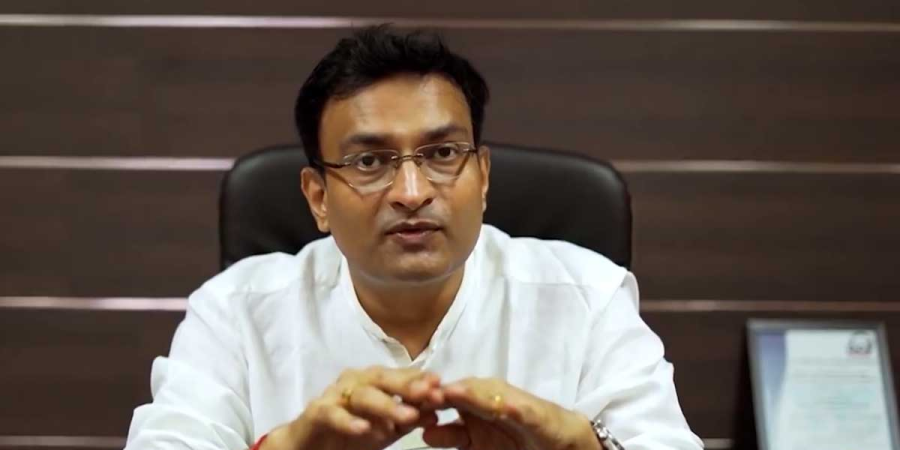

The recent suspension of N Prashanth, a high-profile IAS officer in Kerala known for his outspoken social media presence, raises a compelling question about the limits of freedom of speech, especially for government officials. Prashanth, popularly known as “Collector Bro,” was suspended following a controversial Facebook post in which he openly criticized a senior official, accusing him of orchestrating false reports to tarnish his image. The incident has since sparked a debate over whether Prashanth’s actions exemplify an overuse of freedom of speech, or if he is merely exercising a fundamental right protected by the Constitution.
Freedom of speech, enshrined in Article 19 of the Indian Constitution, guarantees all citizens the right to express their opinions. However, this right is not absolute and comes with reasonable restrictions, especially for public officials bound by service rules that emphasize discipline, discretion, and a commitment to neutrality in public matters.
As a government official, Prashanth’s social media criticisms are not just personal expressions but also public statements that can affect government perception. Many argue that his choice to air grievances against a senior official on a public platform risks undermining institutional integrity and eroding public trust in government officials’ ability to work collaboratively. Therefore, the issue at hand is whether Prashanth’s actions constitute a breach of these service guidelines, suggesting an overstep in his freedom of expression.
Prashanth defended his comments, calling himself a “whistleblower” and alleging that his criticism targeted individual wrongdoing, not the government or its policies. According to Prashanth, his comments were a necessary response to attempts by certain officials to discredit him through fabricated media reports. This reasoning invokes the “whistleblower” argument—a principle that values transparency and holds that officials should expose corrupt or inappropriate behavior within the government. If Prashanth’s allegations are genuine, his defense aligns with a broader responsibility to hold public offices accountable.
However, critics argue that Prashanth’s approach could have been handled through official internal channels rather than through social media, where public scrutiny and opinion can fuel divisiveness. By resorting to an open platform like Facebook, Prashanth’s actions risk appearing more like personal attacks than efforts toward reform, potentially undermining his own integrity and casting doubt on the ethical basis of his accusations.
Social media is both a powerful tool and a double-edged sword when it comes to freedom of expression. For government officials like Prashanth, platforms like Facebook or Twitter offer a space to communicate with the public and share their perspectives. Yet, the very openness of these platforms amplifies the consequences of any statement they make. In Prashanth’s case, while his social media presence as “Collector Bro” has earned him popularity, it has also exposed his actions to intense scrutiny.
Given the current scenario, it raises the question: Should government officials have unrestricted freedom to express themselves online, or should there be stricter guidelines governing their social media usage? The issue becomes even more complex when public service professionals build personal brands that blur the lines between official duties and personal opinions.
A key point in evaluating Prashanth’s actions is the distinction between free speech and professional conduct. The right to free speech is indeed protected, but for public servants, this right is balanced against the responsibilities and decorum expected of their roles. Public criticism of colleagues by a government official, regardless of context, may be seen as unprofessional and disruptive to the internal harmony needed within public institutions. By taking a personal grievance public, Prashanth may have compromised this principle.
Some argue that Prashanth’s actions may set a precedent for other government officials, potentially encouraging them to bypass internal protocols for grievance redressal. If this practice becomes widespread, it could lead to a breakdown of order within public administration, with officials resorting to social media rather than formal channels to air grievances.
Prashanth’s case highlights a pressing need to strike a balance between the right to free expression and the need for professional conduct within public service. Government officials could benefit from clearer guidelines on what constitutes acceptable public expression and where the line should be drawn.
Creating a system that allows officials to voice concerns without violating service rules may help prevent such situations in the future. Whistleblower protections, grievance redressal mechanisms, and training on responsible social media usage could all be part of a balanced approach that respects free speech while upholding professional standards.
N Prashanth’s suspension highlights the complex, evolving relationship between freedom of speech and public service in the digital age. While his defense as a whistleblower has merit, his decision to make his grievances public rather than addressing them through official channels raises concerns about professionalism and the boundaries of free speech for government officials. Whether his actions represent an overuse of freedom of speech or a justified call for accountability remains a matter of public debate. However, his case underscores the urgent need for clearer guidelines on public expression for those in government service to navigate the demands of transparency, accountability, and professional conduct.
